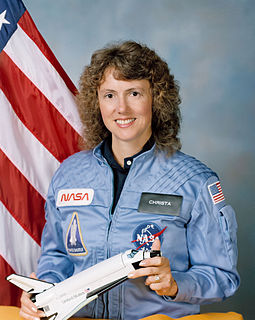A Quote by Jeremy Hansen
I'd like to reiterate that the opportunities in space are going to be vastly different than they've been before, so, for young Canadians preparing for their futures, it's important to understand that there are going to be many opportunities to work in either new space industries that are being developed or to actually go to space, to be one of the people to join our team of explorers who are going to leave lower-Earth orbit. That, ultimately, is amazing, the opportunities we'll have.
Related Quotes
I really love sharing with young Canadians the changes we're seeing in the space program right now with what we call "commercial space." We have commercial cargo delivery to the space station, and now we have what we call "commercial crew," where we're going to be delivering people to low orbit on new vehicles that are being designed by Boeing and SpaceX.
Astronauts will remain the explorers, the pioneers-the first to go back to moon and on to Mars. But I think it's really important to make space space available to as many people as we can. It's going to be a while before we can launch people for less than $20 million a ticket. But that day is coming.
Going into orbit around Earth - where the space station is today, and where the space shuttles and John Glenn and all those folks go-that's three-eighths of an inch above a schoolroom globe, just FYI. That's not very far from Earth. Yes, you are off Earth, but you're not really going anywhere yet. The moon was the only real destination.
I realize that the 2020s are going to be completely different than this decade has been. There's going to be rapid progress. One of the most important aspects is going to be cheaper access to space. It changes everything. We have the ideas and the technology to do a lot of things, but we're limited financially, so, by reducing the cost of access to space, the whole problem is changed. Ultimately, the pieces that are coming together are going to allow us to send humans to Mars - and bring them back.
I think, ultimately, the problem with something like this is that you actually have so many more opportunities to say something than you actually have things worth saying. And then, as an artist who doesn't want to do bad work, gosh, how do you fill up all that space when you really don't have anything actually worthwhile to say? And that's what makes the job tough, because the fans get mad - "That's not funny," or "You've been sucking for several months now." And you go, "It's not my fault! I'm trying."
I think my career will end too early for me to go to Mars, though I might be involved in preparing the next generation to go. I'd love to explore Mars, but, ultimately, it's kind of a crappy planet. The thing is, Mars One people would never go outside without a spacesuit ever again. You're going to live in a tin can. Space stations are noisy; it's like living inside a computer with the fan on all the time. You're never going to smell grass or trees. It's just never going to be anything like Earth. You're never going to swim. You're giving up so much.
The frontier in space, embodied in the space colony, is one in which the interactions between humans and their environment is so much more sensitive and interactive and less tolerant of irresponsibility than it is on the whole surface of the Earth. We are going to learn how to relate to the Earth and our own natural environment here by looking seriously at space colony ecologies.
For the last several years and culminating in six months in orbit next year, I've been training for my third space flight. This one is almost in a category completely different than the previous two, specifically to live in on the space station for six months, to command a space ship and to fly a new rocket ship.
All the big ideas for getting us onto a lower carbon trajectory involve a lot of people doing a lot of work, and that's been missing from the conversation. This is a great time to go to the next step and ask, well, who's going to do the work? Who's going to invest in the new technologies? What are ways to get communities wealth, improved health, and expanded job opportunities out of this improved transition?
I actually had four space flights altogether, three times on shuttles. My second flight was really unique for me because I was going back into space, first of all. The first one was like an appetizer at a nice dinner. You know, you want to go up and you want more. So, the second time I got into space, it was neat because I got to actually do two space walks.


























